#vitamin d food source
Explore tagged Tumblr posts
Text
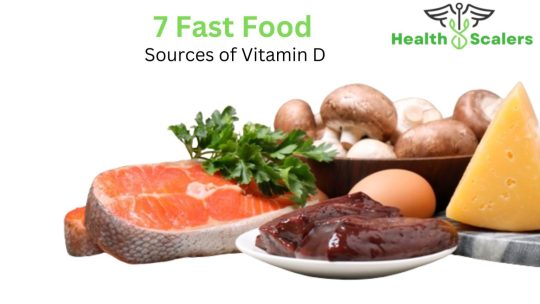
7 Fast Food Sources of Vitamin D
Welcome to a culinary journey that not only satisfies your taste buds but also boosts your Vitamin D intake! In this blog, we will explore 7 Fast-Food Sources of Vitamin D that can contribute to your daily dose of this essential nutrient.
0 notes
Text
Vitamin D & Health
Vitamin D. Vitamin D is likewise known as the sunlight vitamin since the body makes it when the sunlight’s ultraviolet B (UVB) rays struck the skin. It is technically a hormonal agent since it is the only vitamin that the body manufactures. It is important in constructing strong bones and teeth. Vitamin D also reinforces the body immune system and protects against some kinds of cancer. Ten to…
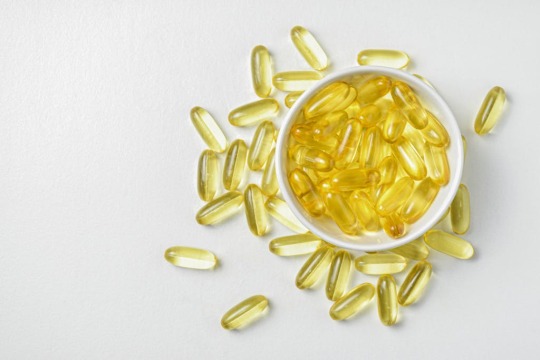
View On WordPress
#vitamin d 25 hydroxy#vitamin d benefits#vitamin d deficiency#vitamin d deficiency symptoms#vitamin d foods#vitamin d rich foods#vitamin d sources#vitamin d supplement
0 notes
Text
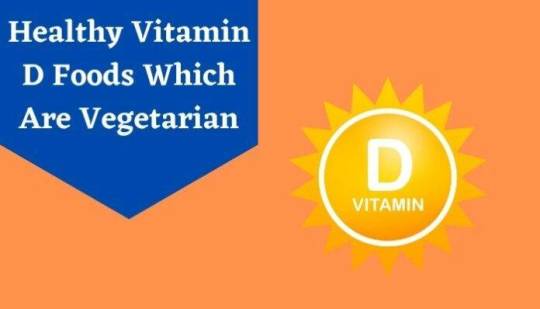
10 Best Vitamin D Foods For Vegetarians You Should Know About| Livlong Learn about the ten vitamin d foods for vegetarians which are required by the body. Know more about the vitamin D vegetarian foods at Livlong. https://livlong.com/blogs/health-and-wellness/healthy-vitamin-d-foods-which-are-vegetarian
#how do i increase my height#vitamin d foods for vegetarians#vitamin d rich foods for vegetarians#vitamin d3 foods vegetarian#vegetarian sources of vitamin d#vitamin d3 sources for vegetarians
0 notes
Text
The Impact of Vitamin D Deficiency on Your Health
youtube
#vitamin d deficiency symptoms#vitamin d deficiency signs#vitamin d deficiency#vitamin d deficiency causes#vitamin d sources#Vitamin d food#slow vitamin d#Youtube
1 note
·
View note
Text

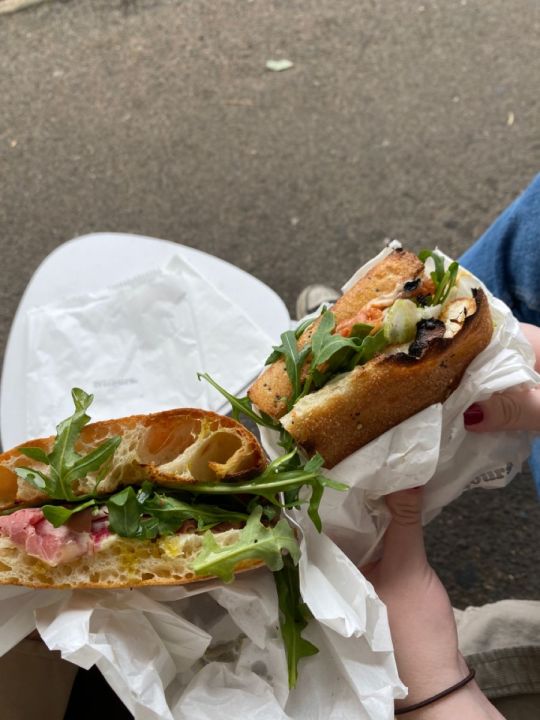
how much should you eat? (the science)
understanding how much to eat and what types of foods to include in your diet is crucial for maintaining health and well-being. it’s all about balance, variety, and moderation. here’s a breakdown:
how much you should eat:
the amount of food you need depends on various factors, including age, gender, activity level, and overall health. the general guideline is to follow the daily caloric intake recommendations. on average:
women: approximately 1,800 to 2,400 calories per day.
men: approximately 2,200 to 3,000 calories per day.
these ranges can vary significantly based on individual needs. notice how it says approximately!! it's important to consult with a healthcare provider or a nutritionist for personalized advice, -or do your own (backed) research for your lifestyle, current weight/height and body type.
types of foods:
fruits and vegetables:
recommendation: aim for at least 5 servings per day.
why: they are rich in vitamins, minerals, and fiber, which are essential for overall health. fiber aids digestion and helps prevent constipation. antioxidants in fruits and vegetables can reduce the risk of chronic diseases.
whole grains:
recommendation: make at least half your grain intake whole grains.
why: whole grains like brown rice, oats, and whole wheat provide more nutrients than refined grains. they contain fiber, which helps regulate blood sugar levels and promotes digestive health. they also provide essential nutrients like b vitamins, iron, and magnesium.
protein:
recommendation: include lean protein in every meal.
why: protein is vital for building and repairing tissues, producing enzymes and hormones, and supporting immune function. sources include lean meats, poultry, fish, beans, lentils, tofu, nuts, and seeds.
dairy or dairy alternatives:
recommendation: aim for 3 servings per day.
why: dairy products and fortified alternatives provide calcium, vitamin d, and protein, essential for bone health. choose low-fat or fat-free options to reduce saturated fat intake.
fats:
recommendation: consume healthy fats in moderation.
why: healthy fats, such as those found in avocados, nuts, seeds, and olive oil, are important for brain health, hormone production, and absorption of fat-soluble vitamins. avoid trans fats and limit saturated fats.
the science behind it:
energy balance: the concept of energy balance is central to weight management. if you consume more calories than you burn, your body stores the excess energy as fat. if you consume fewer calories than you burn, you lose weight.
macronutrients: carbohydrates, proteins, and fats are the three macronutrients that provide energy (calories). each plays a different role in the body:
carbohydrates are the body’s primary source of energy. they should make up 45-65% of your daily calorie intake.
proteins are crucial for tissue repair and immune function. they should constitute 10-35% of your daily calories.
fats are essential for brain health and energy storage. they should account for 20-35% of your daily calories.
micronutrients: vitamins and minerals are micronutrients needed in smaller amounts but are vital for numerous bodily functions, including energy production, immune function, and bone health.
personalized approach:
everyone’s nutritional needs are different, and what works for one person might not work for another. it’s essential to consider your lifestyle, health conditions, culture, and personal preferences when planning your diet. consulting a healthcare provider or a registered dietitian can provide personalized guidance tailored to your specific needs.
remember, a balanced diet not only supports physical health but also enhances mental well-being, energy levels, and overall quality of life. happy eating!
❤️nene
instagram | pinterest | blog site
#that girl#study blog#chaotic academia#student life#it girl#productivity#it girl aesthetic#academia#becoming that girl#student#eating#food#science#stem#stem academia#stem student#stemblr#women in stem#nenelonomh#study hard#100 days of studying#study#study aesthetic#study inspo#study motivation#study notes#it girl mentality#it girl mindset#it girl energy#it girl journey
127 notes
·
View notes
Text

NUTRITION JOURNALS: VITAMINS (PT 1/2)
HOW MANY VITAMINS ARE THERE?
- there are thirteen (13) essential vitamins; vitamin A, vitamin B6, vitamin B12, vitamin C, vitamin D, vitamin E, vitamin K, thiamine (B1), riboflavin (B2), niacin (B3), pathogenic acid (B5), biotin (B7), and folate (B9). these are the ones i'll focus on in this past, and it will be a longer post.
WHAT IS VITAMIN A?
- vitamin A is a fat-soluble vitamin that supports your immune system, vision, reproductive health, and fetal growth. there are two forms of vitamin A; preformed vitamin A which are found in things like dairy, liver, and fish, and provitamin A carotenoids which can be found in fruits, vegetables, and oils. - The recommended daily amount of vitamin A is 900 micrograms (mcg) for adult men and 700 mcg for adult women.
WHAT IS VITAMIN B6?
- vitamin B6 (pyridoxine) is important for normal brain development and for keeping the nervous system and immune system healthy. Food sources of vitamin B6 include poultry, fish, potatoes, chickpeas, bananas and fortified cereals. - vitamin B6 has been shown to have antioxidant and anti-inflammatory properties, and helps your body to make DNA, hemoglobin, and neurotransmitters. - in addition to low iron, low vitamin B6 has been linked to anemia, which i dont imagine i need to tell yall is incredibly common in disordered people. - because B6 is connected to neurotransmitters, it can help regulate mood and even aid sleep. One study showed that higher vitamin B6 intake is associated with lower depression and anxiety risk in females, but not males. - vitamin B6 also helps your body maintain normal levels of homocysteine, an amino acid that helps to build proteins. - vitamin B6 supplementation specifically has been shown to improve body composition – your ratio of lean muscle to fat. it has also been linked with higher muscle mass and lower body fat levels. in particular, vitamin B6 supplementation has been linked to lower-body weight loss, with a reduced amount of fat across the hips and waist.
WHAT IS VITAMIN B12?
- vitamin B-12 (cobalamin) plays an essential role in red blood cell formation, cell metabolism, nerve function and the production of DNA, the molecules inside cells that carry genetic information. - sources of vitamin B-12 include poultry, meat, fish and dairy products. Vitamin B-12 is also added to some foods, such as fortified breakfast cereals, and is available as an oral supplement. - some studies suggest that vitamin B12 could affect body fat and metabolism. one review concluded that vitamin B12 plays a key role in fat metabolism, noting that a deficiency could be linked to increased fat accumulation and obesity. take this with a grain of salt, though, because there is limited research on the topic. - vitamin B12 plays a role in serotonin production, so a deficiency may be connected with clinical depression. this may feel irrelevant, but your physical and mental health are really complexly connected. taking care of one can help improve the other.
WHAT IS VITAMIN C?
- vitamin C (ascorbic acid) is a nutrient your body needs to form blood vessels, cartilage, muscle and collagen in bones. vitamin C is also vital to your body's healing process. additionally, it is an antioxidant that helps protect your cells against the effects of free radicals- molecules produced when your body breaks down food or is exposed to tobacco smoke and radiation from the sun, x-rays or other sources. - vitamin C is found in citrus fruits, berries, potatoes, tomatoes, peppers, cabbage, brussel sprouts, broccoli and spinach. - vitamin C helps your body to absorb iron in foods like beans and spinach, who's bio-availability is lower. - although vitamin C doesn't necessarily cause weight loss, it seems to be related to body weight. getting sufficient amounts of vitamin C increases body fat oxidation during moderate-intensity exercise. - another critical function of vitamin C is synthesizing carnitine, which transports long-chain fatty acids into the mitochondria that produce energy.
WHAT IS VITAMIN D?
- there are different forms of vitamin D, including ergocalciferol (vitamin D2) and cholecalciferol (vitamin D3). vitamin D is found in fish, eggs, and fortified milk. It's also made in the skin when exposed to sunlight. during periods of sunlight, vitamin D is stored in fat and then released when sunlight is not available. - your body can only absorb calcium, the primary component of bone, when vitamin D is present. Vitamin D also regulates many other cellular functions in your body. Its anti-inflammatory, antioxidant and neuro-protective properties support immune health, muscle function and brain cell activity. - vitamin D might play an important role in regulating mood and decreasing the risk of depression, and some studies suggest there may be a link between vitamin D and obesity, though more research is needed to verify this.
WHAT IS VITAMIN E?
- vitamin E is a nutrient that's important to vision, reproduction, and the health of your blood, brain and skin. vitamin E deficiency can cause nerve pain (neuropathy). - foods rich in vitamin E include canola oil, olive oil, margarine, almonds and peanuts. You can also get vitamin E from meats, dairy, leafy greens and fortified cereals. - getting enough vitamin E may help prevent oxidative stress and cellular damage. oxidative stress occurs when there’s an imbalance between your body’s antioxidant defenses and the production and accumulation of compounds called reactive oxygen species (ROS). this can lead to cellular damage and increased disease risk.
WHAT IS VITAMIN K?
- vitamin K is actually a group of compounds, with the most important ones being vitamin K1 and vitamin K2. vitamin K1 is obtained from leafy greens and some other vegetables. vitamin K2 is a group of compounds largely obtained from meats, cheeses, and eggs and synthesized by bacteria. - vitamin K's key role is to help heal injuries through blood clotting and strengthen bones by making four proteins among the 13 that are needed for blood clotting (coagulation) and osteocalcin.

#pierrot reviewed#nutrition journals#ed rant#ed but not ed sheeran#tw ed ana#tw ed not ed sheeren#tw ana bløg#tw 3d vent#tw ana rant#ed blr#ednotedsheeran#ana advice#ed blogg#ed boy#boy ed#ed diet tips#ed ftm#ed male#ed moots#ed nonsense#ed twt#edbr#ftm ed#male ed#trans ed#transmasc ed#tw ed implied#tw edtwt#ana male#ana tip
120 notes
·
View notes
Text
Healthy Skin
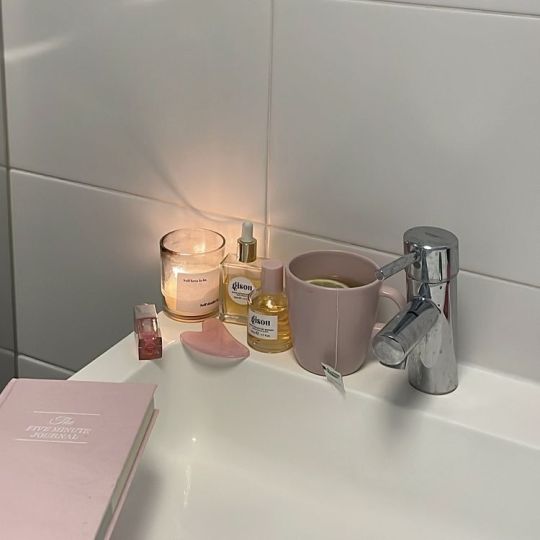
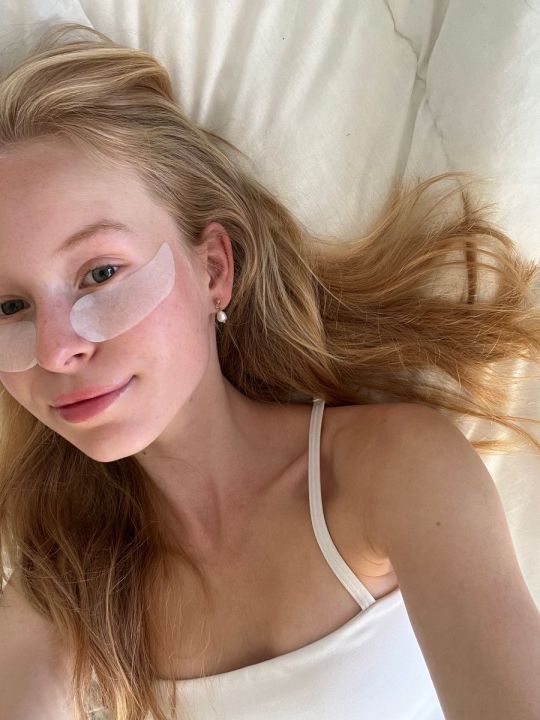
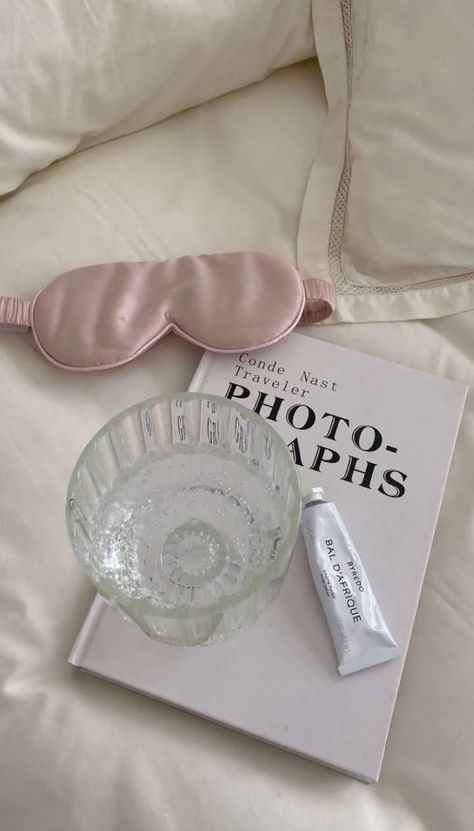
Cleansing and Moisturizing
Have short showers in warm water. Avoid long showers with hot water because it can strips helpful and necessary oils from your skin.
Wash your face twice daily. You should wash your face in the morning when you get up, and in the evening before going to bed.
Pat your skin dry. Instead of rubbing dry with a towel, gently pat your skin with a towel and let the remaining moisture air dry. This applies to both the skin on your face and on your body.
Exfoliate once or twice a week.
Remove your makeup before going to sleep. This will prevent breakouts.
Clean your makeup brushes regularly. This will prevent the build-up and spread of acne-causing bacteria.
Avoid touching your face as much as possible.
Healhy Diet
Fruits and vegetables. They are great for your skin and you body, since they are full of vitamins and antioxidants.
Food rich in omega. Fats are necessary for healthy skin, especially omega-3 and omega-6 fatty acids. Good sources of omega include: walnuts, olive and canola oil, flaxseeds, sardines, mackerel and salmon.
Food rich in antioxidants and selenium. they prevent damage done by free radicals, which contribute to wrinkles, tissue damage, and dry skin. Foods high in antioxidants include: whole grains, berries, apricots, beets, squash and sweet potatoes, tangerines, beans, and olive oil. While foods that contain selenium include: whole-wheat pasta, button mushrooms, beef and turkey, oysters, shrimp and crab, snapper and cod, and some other fish.
Food rich in coenzyme Q10. Coenzyme Q10 is an antioxidant that be found in: whole grains, fish, organ meats, and soybean, canola, and sesame oils.
Food rich in flavonoids. Flavonoids have both antioxidant and anti-inflammatory properties. It can be found in: dark chocolate and green tea.
Drink water. At least 2L daily.
Avoid added sugars. As well as processed or refined carbohydrates and unhealthy fats.
Lifestyle
Get 7 to 9 hours of sleep each night. Not getting enough sleep can make your skin appear dull and sallow. when we sleep, our bodies secrete certain growth hormones, and this leads to collagen production.
Reduce your stress levels. Yoga, meditation and breathing exercises can help you to relieve stress.
Exercise on a daily basis. Exercise increases blood flow to your skin and supplies it with oxygen and nutrients.
Protect your skin from the sun. A minimal amount of UV exposure is necessary for vitamin D production (20 minutes is enough for most people), but too much sun can damage your skin. Choose a sunscreen with a minimum of 15 SPF, wear it every day and avoid the sun between 10 am and 2 pm.
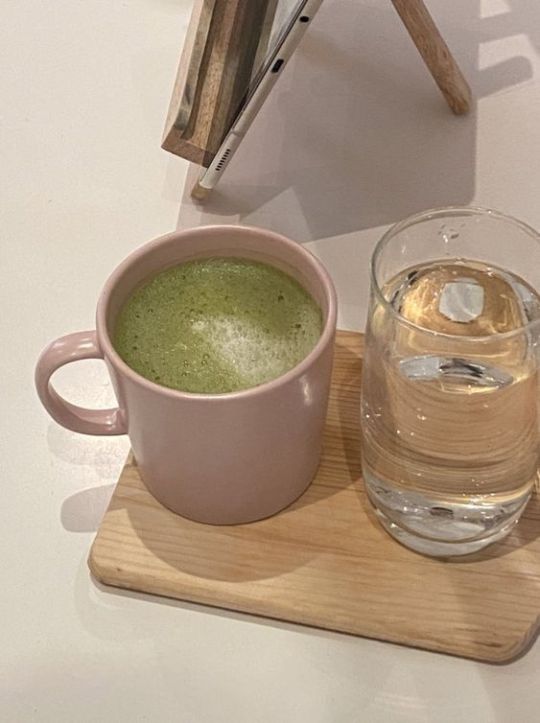
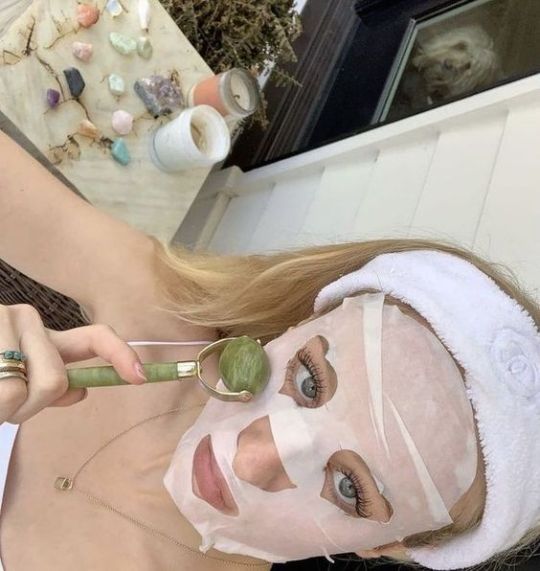
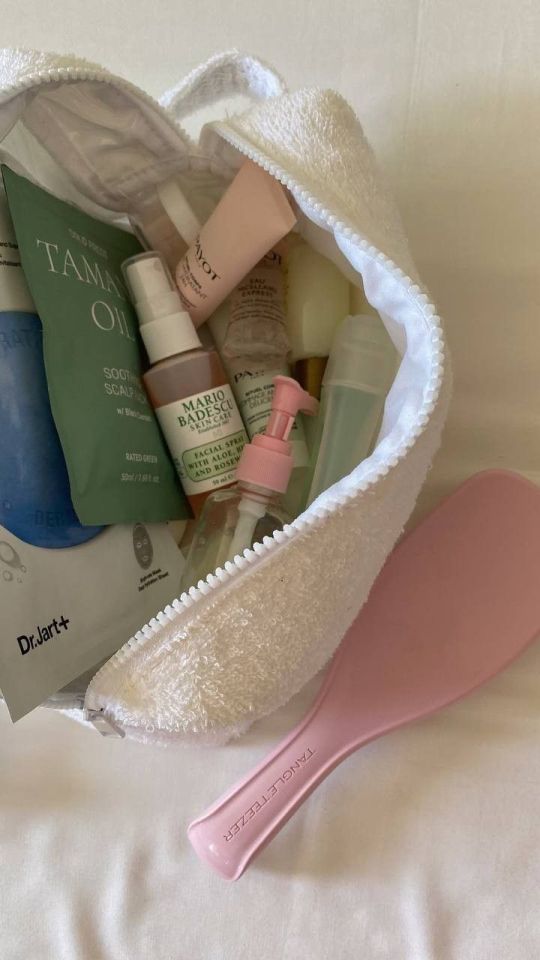
#coquette#pink pilates girl#hyper feminine#victoria secret angel#girly girl#self care#self improvement#self healing#self love#high maintenance#glow up#cinnamon girl#clean girl#dream girl#green juice girl#it girl#pinterest girl#that girl#pink blog#pink pilates princess#pinterest#aestethic#feminine#feminine energy#soft feminine#skincare#healthy
622 notes
·
View notes
Text

☆⋆。 beauty boosting food! ☆⋆。
a healthy diet doesn’t have to be boring or repetitive! i see food (especially smoothies!!) as potions i can tailor towards exactly what i need. this post is to tell you about what i like to call functional foods ✧˖°
୨୧ skin treats ୨୧
feed your skin from within !! ໒꒱ ‧₊˚
🍓 berries — packed with antioxidants to keep your skin looking bright. my favs are blueberries, strawberries, and goji berries !!
🥑 avocado — full of healthy fats, helps keep your skin hydrated and soft, reducing the appearance of wrinkles. it can also be used topically! i love it on toast or as a base for smoothies!
🥕 carrots — rich in beta-carotene (a type of vitamin A), carrots can help improve skin tone and even give you a subtle glow. some people even take concentrated capsules to look tanner 0.o
🌿 green tea — high in antioxidants, especially EGCG, green tea can help fight inflammation and reduce acne. it has caffeine so it’s a great morning drink!! ヽ(✿゚▽゚)ノ
୨୧ hair helpers ୨୧
for visibly and structurally healthy hair! ミ☆
🥥 coconut oil — you can add this to smoothies or use it for cooking, and the healthy fats will nourish your hair from the inside out. you can even use it as a hair mask !
🌰 nuts & seeds — they’re full of omega-3 fatty acids and vitamin E, nuts and seeds like almonds, walnuts, chia, and flaxseeds promote hair growth and prevent damage !
🐟 salmon — packed with omega-3s and protein, salmon can make your hair stronger and shinier. it's a beauty superfood! i feed it to my cat to keep her extra shiny ᓚ₍^・ﻌ・^₎
🍳 eggs — eggs are full of biotin and protein, both of which are essential for strong, healthy hair !!
୨୧ brain boosters ୨୧
for focus, memory, and mental clarity, keep your brain beautiful! જ⁀➴
🥑 avocado — besides being a skin and hair hero, avocado also supports brain health with its rich supply of healthy fats and vitamin K. we love a multi-functional food !
🍫 dark chocolate — full of flavonoids, caffeine, and antioxidants, dark chocolate can improve brain function and give you a quick mood lift ⭑.ᐟ
🫐 blueberries — these little berries are packed with antioxidants that protect your brain from aging and boost memory. they’re also antioxidants which i mentioned above ^.^
🐠 fatty fish — fish like salmon, sardines, and mackerel are high in omega-3s, which are key for brain health !
୨୧ healthy body support ୨୧
keep your body strong and healthy to support ur princess lifee ૮ ∩´ᵕ`∩ ྀིა
🍠 sweet potatoes — packed with fiber, vitamins, and minerals, sweet potatoes help with digestion, boost immunity, and keep you full of energy.
🥦 broccoli — this veggie is a powerhouse of vitamins C, K, and folate. it's great for immune support, bone health, and even glowing skin.
🍋 lemon — starting ur day with lemon water can help to aid digestion, boost vitamin C levels, and keep your immune system strong. it's a simple way to give your body some love and is super yummy !
🍄 mushrooms — rich in selenium and antioxidants, mushrooms are amazing for your immune system! just make sure you do your research >.
୨୧ hormone balancers ୨୧
help balance your hormones ≽^-˕-^≼
🌱 flaxseeds — full of lignans, which can help balance estrogen levels, flaxseeds are great for hormone health, especially during the premenstrual period !
🍳 egg yolks — a great source of vitamin D and choline, egg yolks help regulate hormones and keep you feeling balanced !
🥛 almond milk — almonds are a good source of magnesium, which helps control stress hormones like cortisol. plus, it’s a dairy-free option that's easy on digestion !
🍠 maca root — this is a superfood known for balancing hormones, boosting energy, and improving fertility. you can find it in powder form to add to your smoothies or oatmeal.
୨୧ overall self-love ୨୧
you deserve the best! ₊˚⊹ ʚɞ
🍋 lemon — full of vitamin C, which helps with collagen production, lemons can brighten your skin and boost your immune system. i like to start my day with warm lemon water !
🍃 leafy greens — spinach, kale, and other leafy greens are full of vitamins and minerals that detox your body and keep your skin clear ! they’re a great thing to add to smoothies for an extra vitamin boost !
🍍 pineapple — this tropical fruit has enzymes that can aid digestion and give your skin that lit-from-within glow :3
🍯 honey — nature's sweet healer! honey has antibacterial properties, so it’s great for your immune system and can even be used topically for glowing skin. thanks bees !! 🐝˚ ༘ ೀ⋆。˚
#it girl#self concept#self care#that girl#self love#it girl energy#dream girl#dream life#dreamy#hyper femininity#hyper feminine#girly#girl blog#princess#dolly#aesthetic#health & fitness
50 notes
·
View notes
Note
trans-omega tips please ? { like the ones in omegaverse fanfics !! }
also specifically a little nsfw but i get extremely dysphoric about not having my heats !! so if you have any tips for that specifically i would be so grateful !! maybe you could hide it under a read more/continue reading thingy !!
thank you !! ♥️♥️♥️

TRANS - OMEGAVERSE ( OMEGA ) . . .
warning of nsfw topics under the cut ! :3
Hello , so I am a headmate who is cis-omega in headspace , decided why not help out , yk ?
If you experience ovulation - you can associate that with Heat , and for dysphoria , you can download those ovulation tracking apps that give little reminders .
In my source , I often had to take suppressants before going out in public , so focus on that during heat - have reminders on your phone that you need to take vitamins before going out to school / work / out public . Imagining that the vitamins are suppressants can help a lot with dysphoria + vitamins can be gotten just over the counter ( commonly omega 3 fish oil , magnesium or vitamin d ) .
Make nests . I see people say nests are only when someone is in heat , which is wrong , nest can be made whenever the fuck you want - if you wanna be comfortable ? make a nest lmao . But there is also no rules to what makes a nest . All that matters is that you're comfortable , it can just be blankets and pillows , plushie toys , or even clothes that make you feel calm . Some inspo if you're stuggling : inspo .. INSPO .. inspo .
More euphoria - go perfume shopping and figure out what your scent is . You can also assign a scent to your partner . You can buy the said perfume that you assign to yourself / your partner . During heats , you can cover yourself in the perfume - or when nesting , you can use the partner perfume to make you feel more comfortable .
You can set yourself rules based on your cycles . Example ; i generally , for whatever reason , cannot drink beer when i can feel something coming on - never know why , but my mind just sort of , thinks it makes sense ? I've heard that this is common for other omegas , just weird rules that they believe will " help them conceive" upon instinct , even if it doesn't make much sense . But you can set these sort of rules to yourself , any sort . I've heard some have hydrophobia during pre-heat , some claim that eating a specific food is ' bad ' , ect .
Hope these were even just a bit helpful , good luck <3


#.ᐟ my dear corpse ..#radqueer#rq 🌈🍓#transid#rqc🌈🍓#pro radq#pro radqueer#rq#radqueer safe#pro rq 🌈🍓#pro transx#transx#pro transid#rq safe#transid safe#transid transitioning tips#transid transition#transid transitioning#transid tips#transid positivity#trans identity#transid community#radqueer community#radq safe#rqc#radqueers please interact#rqc 🌈🍓#pro rq#rq community#rq 🍓🌈
75 notes
·
View notes
Text
Femme Fatale Guide: Tips To Relieve Everyday Bloating
As someone who has dealt with chronic bloating for a lot of my life, here are some of my thoughts, observations, and recommendations. HUGE disclaimer: I am in no way an expert on this, a medical professional, nutritionist, or anything of the sort.
Especially for women, bloating can be a sign of gynecological issues (endometriosis, PCOS, hormone imbalances like estrogen dominance, and even a warning sign of ovarian cancer). So, if you experience constant bloating that doesn't get better with improved digestion, schedule an OB/GYN appointment ASAP to ensure that everything is okay on the women's health front.
Everyone's triggers are different, but for me, these are some of the common causes of bloating that I've noticed:
Lack of sleep
Stress
Eating too quickly or while stressed
Lack of movement/walking
Not drinking enough water
High-fat meals
Chewing gum
Carbonated drinks/alcohol
Here are some of my best tips, habits, and product recommendations to manage & minimize bloating:
Engage in a 1-minute diaphragmatic aka deep-belly breathing exercise in bed right after waking up and right before going to sleep (place one hand on the middle of your chest and the other in the central "hollow" area right below your rib cage)
Get at least 6-7 hours of sleep a night
Have a bowl of oatmeal (made with plain oats and water) with cinnamon and fruit every morning
Drink water before any coffee in the morning; Only having at most 16oz or one large mug of coffee before breakfast in the morning
Chew my food slowly, taking time between bites
Drink at least 8 large glasses of water daily
Take my Vitamin B12 and Vitamin D supplement daily (I love the Deva brand!)
Have avocados/use avocado oil as my primary fat source (I love nuts/nut butter, but they really bloat me, so find your trigger foods!); I've found a large salad with a romaine lettuce base, some veggies, avocado, and an ACV-based dressing works wonders to settle my stomach or steamed spinach with roasted root vegetables/potatoes
Use digestive enzymes when necessary (These digestive enzymes are my favorites!)
Take at least 30 minutes to walk/move around daily (Pilates, yoga, or bodyweight exercises also work)
Drink ginger tea or some herbal-based tea nightly (my long-time favorite is Bigelow Benefits Calm Stomach Ginger Peach Herbal Tea!)
Don't eat anything for at least 3 hours before bed
For trapped gas: Try lying on your stomach, engaging in the downward dog yoga position or fetal position on the left side, or doing an abdominal massage (rubbing in a circular motion from the right side of your pelvis up through your rib cage down and around the left side) all work well!
#bloating#debloat#digestivesupport#gut health#femme fatale#girl tips#girl talk#gut microbiome#healthy habits#health and wellness#healthylifestyle#self healing#girl advice#life advice#diet and nutrition#exercise#healthy eating#it girl#dark feminine energy#dark femininity#the feminine urge#sleep hygiene#dream girl#queen energy#high value woman#female excellence#female power#femmefatalevibe
609 notes
·
View notes
Text
Let’s talk Health



So guys, i am turning 29 in a month and let’s be real my body is not what it used to be! Despite me working out 4times a week, fasting, and paying attention to what i eat, i can feel my body weakening in way. Not that i don’t feel healthy but I’m still having some back pain, less energy, and just like feeling my body more. And that is normal.
20 years old me and 30 years old me wont be the same! There are things that we need to do to keep up so we maintain our best self. My body wont be producing all the collagen that i use too, likes guys i can hear my BONESSS! And I’m telling that is is not giving!
After a bit a research, i realized that i was lacking nutrient that my body could not produced on it’s own or way less!
So here a list of Nutrients we need as bad gyals hitting our 30s, especially as black women
1. Vitamin D 🌞
Why? Black women are more likely to have vitamin D deficiency due to melanin reducing sun absorption. Low levels can affect bone health, immunity, and mood.
Sources: Sun exposure (15–30 mins/day), fatty fish (salmon, mackerel), fortified foods (milk, orange juice), and supplements (2,000 IU daily if deficient).
2. Iron 💪🏾
Why? Many Black women experience iron deficiency, which can lead to fatigue, hair thinning, and anemia.
Sources: Lean meats, beans, lentils, spinach, tofu, fortified cereals. Pair with vitamin C (oranges, peppers) to boost absorption.
3. Magnesium 🧘🏾♀️
Why? Supports stress management, sleep, muscle function, and heart health. Many people don’t get enough.
Sources: Nuts, seeds, whole grains, dark leafy greens, dark chocolate.
4. Calcium 🦴
Why? Helps prevent osteoporosis, which Black women are at higher risk for later in life.
Sources: Dairy, leafy greens, almonds, fortified plant-based milks.
5. Omega-3 Fatty Acids 🧠
Why? Supports heart, brain, and joint health while reducing inflammation.
Sources: Salmon, sardines, walnuts, flaxseeds, chia seeds, omega-3 supplements.
6. B Vitamins (Especially B12 & Folate) ⚡
Why? Helps with energy, brain function, and red blood cell production.
Sources: Eggs, fish, meat, leafy greens, fortified grains, and B-complex supplements if needed.
7. Collagen & Vitamin C ✨
Why? Supports skin, hair, nails, and joint health.
Sources: Bone broth, citrus fruits, bell peppers, berries, collagen supplements.
8. Fiber & Probiotics 🥗
Why? Supports gut health, digestion, and weight management.
Sources: Whole grains, beans, vegetables, yogurt, kefir, and fermented foods.
9. Zinc & Selenium 💁🏾♀️
Why? Supports immune function, hair health, and thyroid balance.
Sources: Shellfish, nuts, seeds, Brazil nuts, and meat.
Supplement Recommendations:
Multivitamin for Women (with iron, D, and B vitamins)
Vitamin D3 (if deficient)
Omega-3 Fish Oil
Magnesium Glycinate (for stress & sleep)
Probiotic (for gut health)
Hope this helps my lovesss, until next time
#becoming that girl#girlblogging#manifesting#dream girl#self care#self improvement#digital journal#late twenties#black girls of tumblr#it girl#self growth#body sculpting#self obsessed#self love#becoming the best version of yourself#health & fitness#healthcare#pinkcore#work in progress#positive thinking#hyper feminine#feminine energy#divine feminine#goddess energy#law of assumption#girl core#im just a girl#goddess#girl blogger#body care
41 notes
·
View notes
Note
I really enjoyed your latest fic, sever the blight! But what really fascinates me are those nutrient cubes. What do you hc them being made out of? I remember in the fic someone mentioning them tasting fishy? And thinking about the r&d work that went into developing them is making my brain turn! Just Bruce developing a way to process, cook, and package the cubes, AS WELL AS running shelf life studies on them (I know he would, he's the type to run a 2+ year shelf life study, he would be that thorough). And the thought and care that went into making those cubes might be another way of Bruce showing that he cares for his children (in his weird way). If they get stuck/trapped somewhere for a long period of time, he's going to make sure he has a reliable, (somewhat) healthy, and safe food source for his kids until help comes.
Again, excellent fic!
Ahh thank you for asking about those! I think I wrote them that way half because I've been reading too much Star Wars fic and half because I'm a weightlifter about to go into another cut, so I've been thinking a lot about optimal nutrition.
My (admittedly non-expert) hc for the cubes was that they were made of complete proteins, omega 3's (hence the slightly fishy smell Clark notes) and some essential vitamins, while being as calorically dense and compact as possible. You need protein, calories, and fat for the fat-soluble vitamins, and you need it to be small, essentially.
Bruce's cubes kind of tell us several things about him:
He keeps more than a month's worth of calories in his belt at any time
He keeps those calories in a form that his children or other humans can consume
He knows the exact nutritional value of each cube and has a plan already reviewed to ration them, if needed
He knows how long he himself can go without the cubes before experiencing a go/no go point
He has, like you pointed out, tested these cubes to the point of perfection. They are optimized for both maximum output and minimal use of space.
The fact that the boys are used to the cubes, as Clark notes, means Bruce has fed them the cubes before. Either on missions, as snacks, or something else. Testing, perhaps?
He has, either intentionally or somewhat intentionally, designed the cubes to fulfill multiple nutritional needs. i.e., those of teens, growing children, adults, and adults with metahuman or enhanced abilities.
Bruce has likely experienced a time, or several times, when food has been scarce or when carrying optimal nutrition while fighting has been difficult.
You're exactly right -- there's always going to be a safe, bioavailable source of optimal nutrition for him and/or his kids within his belt at any given time. If he's alive, or they have his belt, they're safe for at least a few weeks.
It's a small cube, and his kids barely blink at it. But there's a whole world of care, service, and love wrapped up in that tiny little fishy protein cube.
#bruce my beloved acts of service example#myfic#theresurrectionist#sever the blight#asks#thank you friend!#tw discussion of weight loss/gain#tw discussion of calories#tw starvation#nutrition#me talking out of my non-science ass as usual#batfamily#batman#bruce wayne#dc
99 notes
·
View notes
Note
out of curiosity more than anything is there any specificity in the fish Norway wants you to eat, freshwater fish, seafood fish, is it an industry thing, or is it just a Norwegians are all heading towards rickets thing
the norwegian fish industry is largely sea based, which makes sense considering this country is 90% coast, and salmon is one of our big exports (and also the reason salmon sushi is a thing! salmon on sushi is not traditionally japanese). the fish youre encouraged to eat are fish with healthy fats and omega 3, and i think salmon and cod are like. the two main fish you can get. fish has always been a Big Thing in norway culturally, seeing as it's probably one of the most reliable local food sources in a place that's this much coast this far north. one of the traditional christmas meals in norway is halibut.
my impression that it's always been a Health thing because norwegians are chronically low on vitamin D and other consequences of living this far north haha. we're also encouraged to drink fish oil (tran) or take omega 3 supplements. i'm actually not sure if there's vitamin D in fish? (i know they add vitamin D to low fat milk - norwegians also drink So Much Milk. there's not a lot of milk propaganda though. you don't need to propagandize milk here. edit: there's milk propaganda too)
i also want to say that the most entitled and unpleasant people i've met have been fish industry people. when i worked at the hotel i had so many unpleasant interactions - drunk fisherman on the phone telling me he was super rich and trying to bribe me for sex workers, fisherman telling the receptionists he's serving his country and working a real job unlike us (and then leaving a box of fish in the reception, demanding that we put it in the breakfast fridge even though it would go against health and safety regulations), and of course the dreaded Annual Fishery Convention or whatever it is when all the hotels in town are full of chauvinists getting drunk every night. what the fuck is going on on those boats
#Not All Fishermen but i think there's something wrong with the fishing industry culture#my late grandfather was a fisherman in addition to a farmer and ive heard he was a real snob about fish#if it was from a nearby town it was Not fresh enough#also caveat that im only speaking from my limited perspective and experience#i don't actually eat a lot of fish... autism doesn't like it#i can do salmon and halibut and that's about it#also i have never heard the expression headed towards rickets before so i hope im interpreting it correctly
22 notes
·
View notes
Note
after eating a diet of mainly shit for quite a few months(mickey d’s, chips, and general fast food), i had a fried egg today with rice and now my body demands eggs -tf2heritageposts
i do highly recommend eating eggs more often if you can, theyre a wonderful source of protein!! vitamins and choline as well!
24 notes
·
View notes
Text

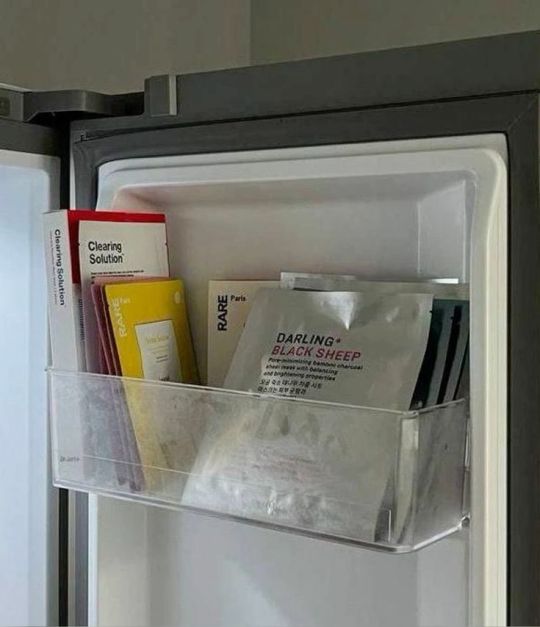
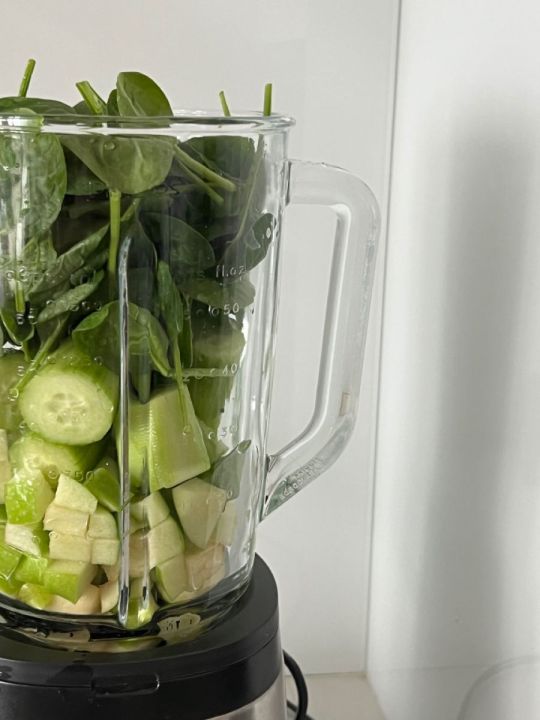
how to reduce acne (and what is acne)
acne is a skin condition that occurs when hair follicles become clogged with oil and dead skin cells. it typically results in whiteheads, blackheads or pimples that can appear on the face, forehead, chest, upper back and shoulders. acne is most prevalent among teens but can affect people of all ages. several factors contribute to acne, such as excess oil production, buildup of dead skin cells, bacterial growth and inflammation.
acne is not inherently 'bad' but it is a source of discomfort for many people. while acne itself is not a bad thing, it can lead to potential complications if not managed properly, such as scarring or emotional distress.
when reading this post, it is important to remember that everyone's skin is different and what works for one person may not work for another. i'd like to add that i am not a dermatologist, and this post is written with my own experience in mind as well as research online.
reducing acne involves a combination of skincare practices and lifestyle adjustments. here are some recommended actions:
properly wash your face cleanse your face twice daily to remove excess oil, sweat and dirt. some common face washing mistakes include using the wrong cleanser, over-washing your face, under-washing your face, the wrong water temperature and using a dirty washcloth. don't worry if this all seems confusing, here's a post on how to properly wash your face.
know your skin type use products suitable for your skin type only--oily, dry, combination or sensitive. you can find this out by visiting a dermatologist or (alternatively) researching the skin types and seeing which best matches your skin.
moisturise moisturiser curbs dryness, which balances oil production in your face and therefore helps to prevent acne. choose a non-comedogenic moisturiser to not clog your pores.
consider over-the-counter treatments think about acne treatments with ingredients like benzoyl peroxide or salicylic acid.
stay hydrated drink plenty of water to maintain skin hydration. good hydration helps to maintain skin elasticity, supports the skin's protective functions and prevents sunburn, sensitivity and oiliness. women should drink about 2.7L of fluids every day (including water, other beverages and food).
limit makeup use minimal makeup and ensure that it is non-comedogenic. don't stop wearing makeup if it is something you enjoy, however, try to limit it in acne-strong areas.
don't touch your face this is a big one, and yet so many people do it. keep your hands away from your face to prevent the spread of bacteria. seriously, you use your hands for so much--you don't want the germs of everything you've touched on your face.
limit sun exposure protect your skin with appropriate sunscreen. and remember to re-apply! limiting sun exposure also reduces skin cancer risk. balance is key, though, because the sun is necessary for vitamin d production and maintaining circadian rhythms.
exercise regularly physical activity can help reduce stress, which may contribute to acne.
enjoy a healthy diet eating a well-balanced diet can support skin health. consider reducing dairy and high glycemic foods. a diet with a low glycemic index may help balance hormone levels, which is the same effect when insulin spikes occur less. essential nutrients promote skin health and help to repair and maintain the skin barrier.
invest in stress management find ways to reduce stress, such as journaling or going for a walk. stress can worsen acne. this is because, under stress, the body's healing process slows down, meaning acne can take longer to heal and become more severe. stress hormones can also increase oil production, leading to clogged pores.
(images are from pinterest)
#elonomh#elonomhblog#student#student life#academia#chaotic academia#study blog#productivity#studyblr#that girl#that girl aesthetic#becoming that girl#it girl energy#clean girl#pink pilates princess#wonyoungism#it girl mentaility#it girl aesthetic#it girl#dream girl#pinterest girl#girl blogger#level up journey#leveling up#acne#acne treatment#skincare#glowingskin#skincare routine#skincare tips
95 notes
·
View notes
Text

Shiitake mushrooms (Lentinula edodes) are prized not only for their rich, savory flavor but also for their impressive health benefits. Here are some of the key benefits of consuming shiitake mushrooms
1. Boosts Immune System
• Shiitake mushrooms contain polysaccharides like lentinan, which enhance immune function by increasing the activity of immune cells, such as T cells and macrophages.
2. Supports Heart Health
• Lowers cholesterol: Compounds like eritadenine and beta-glucans in shiitake mushrooms help reduce “bad” LDL cholesterol levels.
• Improves circulation: Shiitake’s antioxidants, such as selenium, support cardiovascular health by reducing inflammation and oxidative stress.
3. Rich in Nutrients
• Shiitake mushrooms are an excellent source of essential nutrients like:
• B vitamins (B2, B3, B5): Support energy production and brain health.
• Vitamin D (when exposed to sunlight): Improves bone health and immune function.
• Minerals like copper, selenium, and manganese: Aid in antioxidant defense and energy production.
4. Antioxidant Properties
• Shiitake mushrooms are rich in antioxidants like polyphenols and ergothioneine, which help neutralize free radicals, reduce oxidative stress, and lower the risk of chronic diseases.
5. Supports Skin and Hair Health
• The high selenium and zinc content in shiitake mushrooms helps maintain healthy skin and hair by reducing inflammation and promoting repair.
6. Aids in Weight Management
• Shiitake mushrooms are low in calories and high in dietary fiber, which promotes a feeling of fullness, aids digestion, and supports healthy weight loss.
7. Anti-Cancer Properties
• Lentinan, a polysaccharide in shiitake mushrooms, has been shown to exhibit anti-tumor effects by boosting the immune system and slowing cancer cell growth.
8. Improves Gut Health
• The prebiotic fibers in shiitake mushrooms feed beneficial gut bacteria, which improves digestion and supports a healthy microbiome.
9. Fights Inflammation
• Shiitake mushrooms contain compounds like ergothioneine and polysaccharides that help reduce inflammation and prevent chronic inflammatory conditions.
10. May Help Prevent Infections
• Shiitake mushrooms exhibit antibacterial, antifungal, and antiviral properties, which may help protect against common infections.
How to Incorporate Shiitake Mushrooms
• Add fresh or dried shiitake mushrooms to soups, stir-fries, and sauces.
• Use shiitake mushroom powder as a seasoning or in teas for a concentrated dose of nutrients.
• Sauté them with garlic and herbs for a flavorful side dish.
While shiitake mushrooms offer many benefits, consuming them in moderation is advised to avoid potential side effects like skin irritation (shiitake dermatitis) or digestive discomfort in sensitive individuals.
#ambitious women#glow society#beautiful women#beauty#the glow society#fit beauty#health#self love#self improvement#self care#women’s health#black girl moodboard#tumblr girls#boss women#healthy food#self development#fit girls#health and wellness#womens workout routines#becoming that girl#mushrooms#shroooms#shroooooms#420life#420stoner#420culture#420daily#420girl#420weed#420photography
8 notes
·
View notes